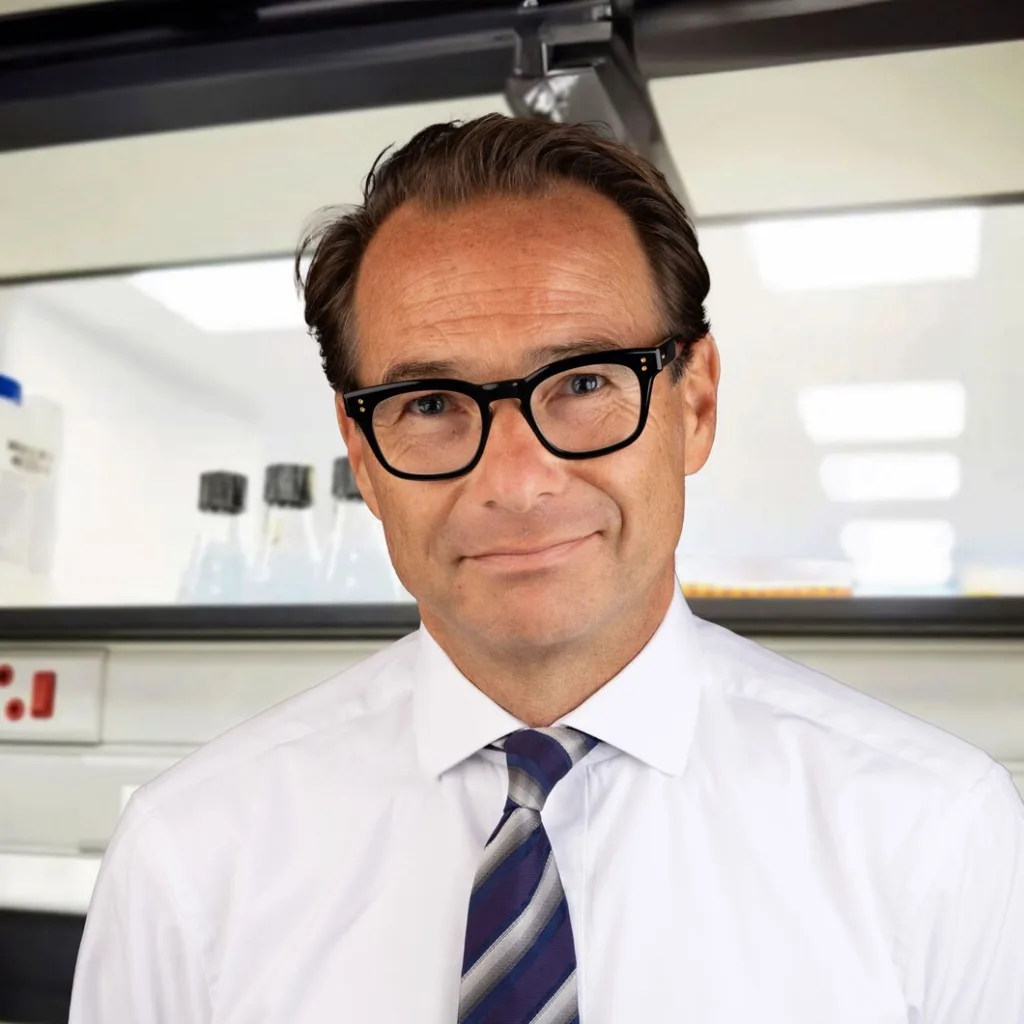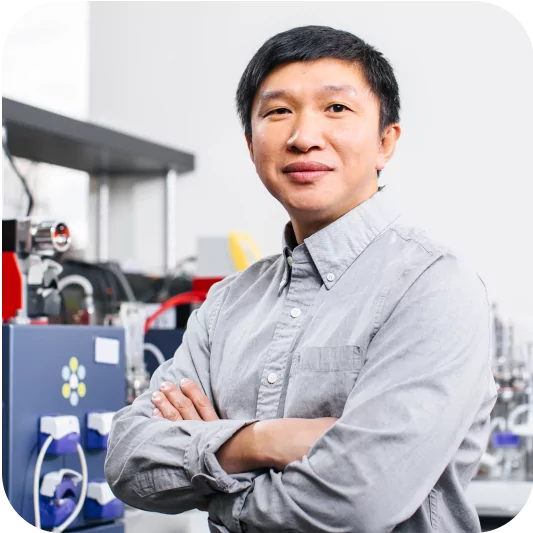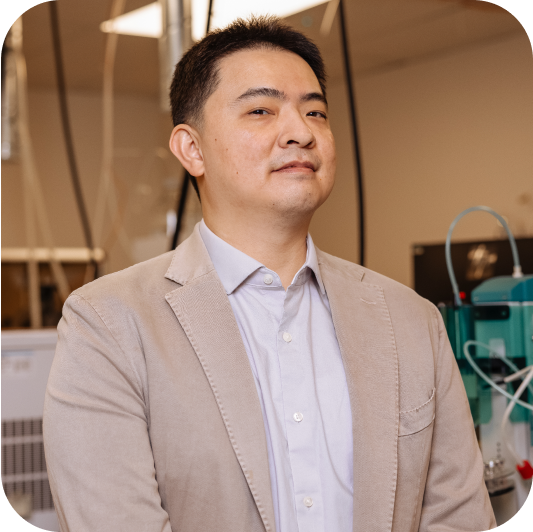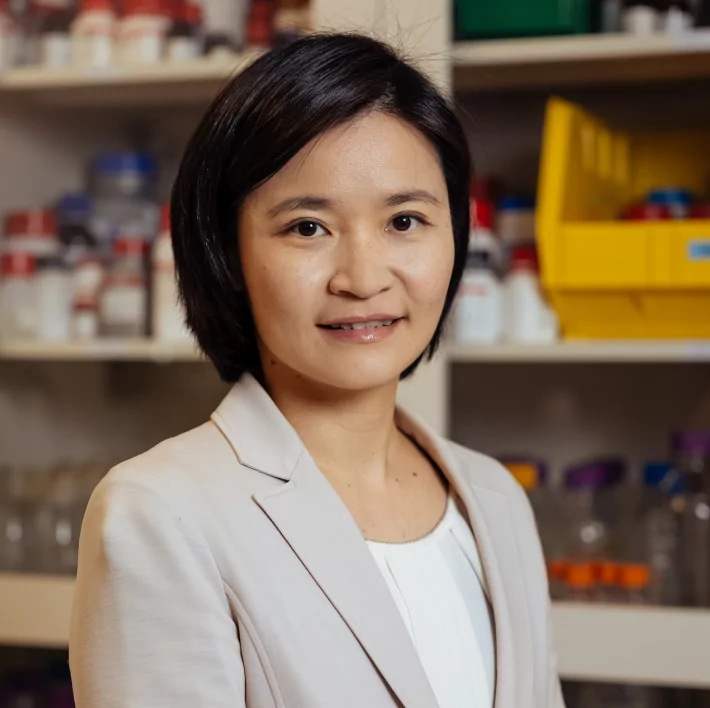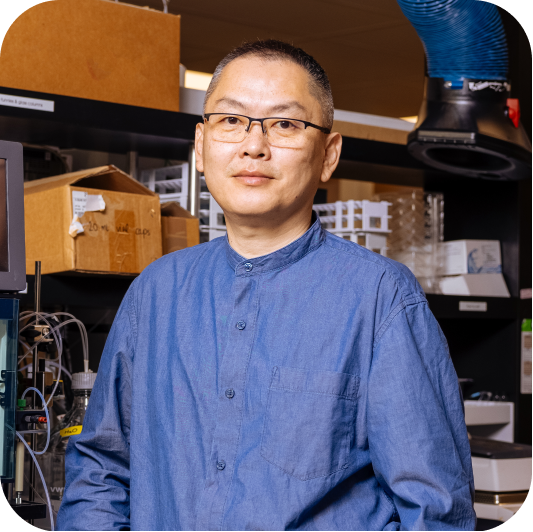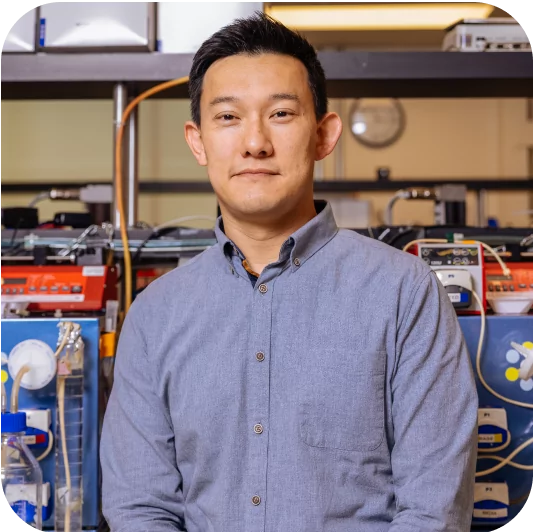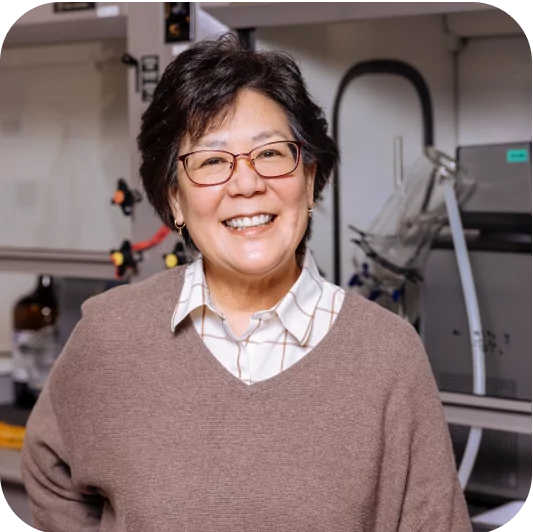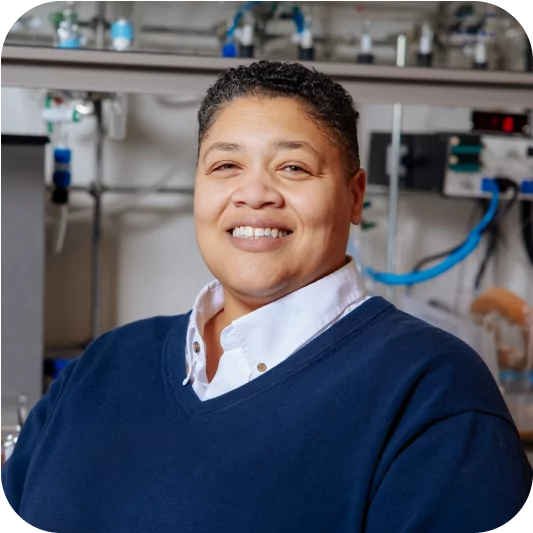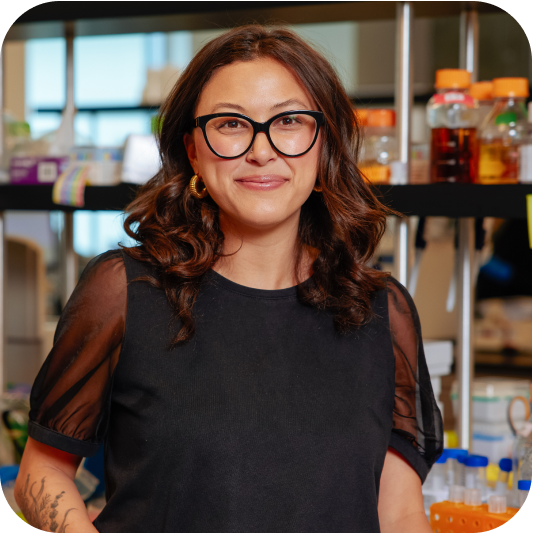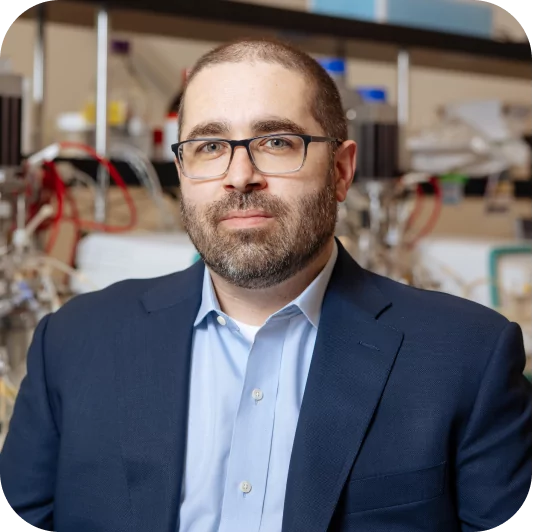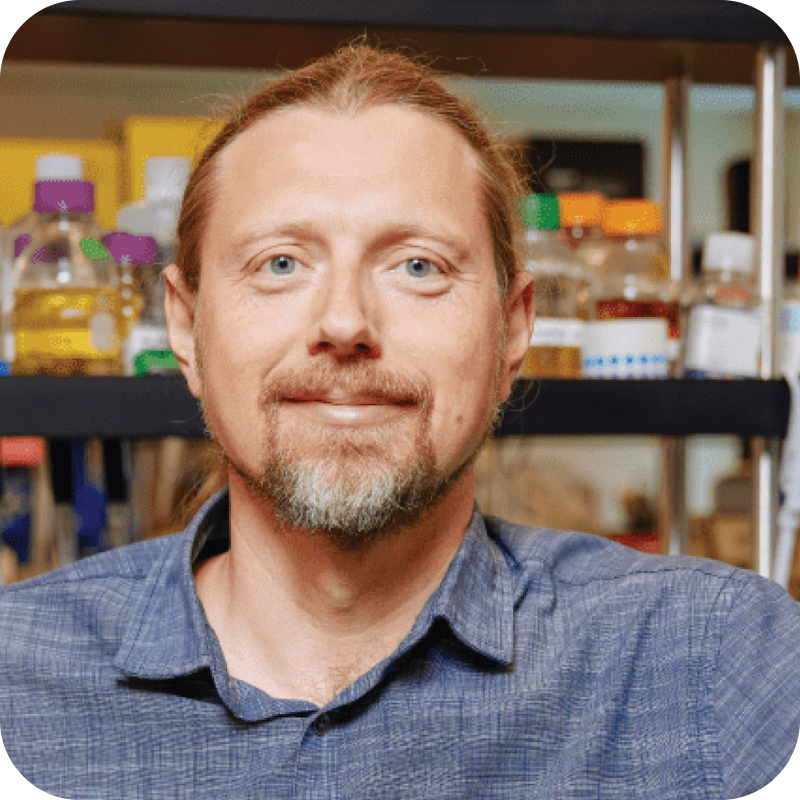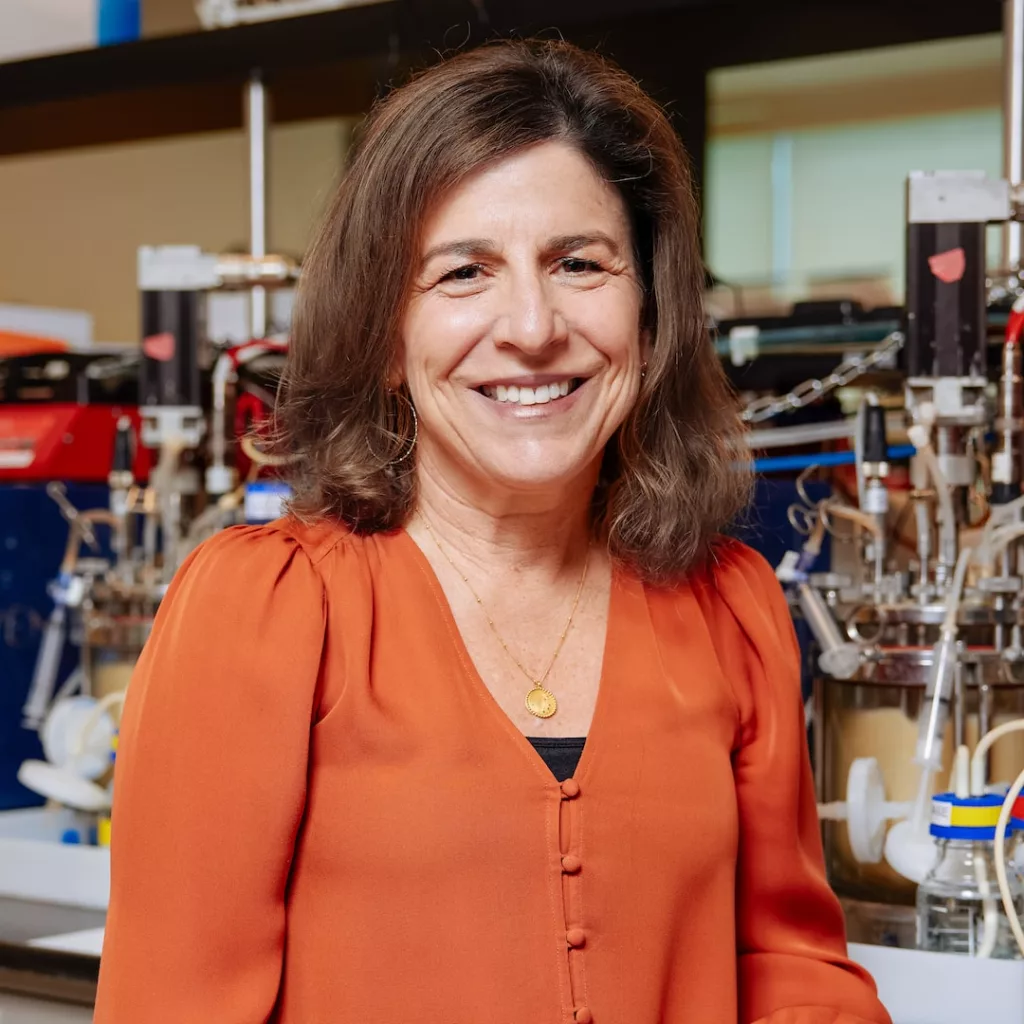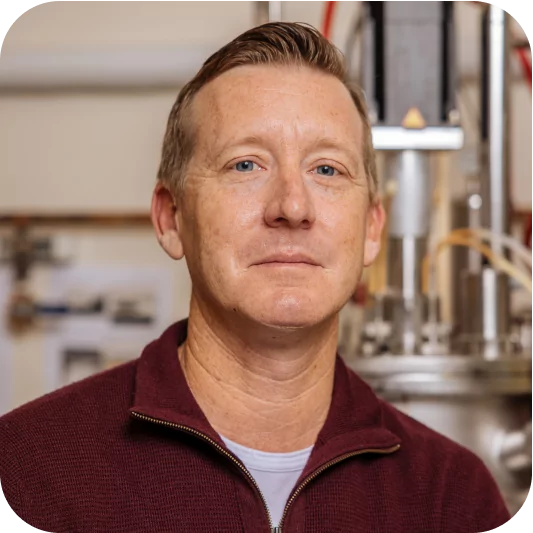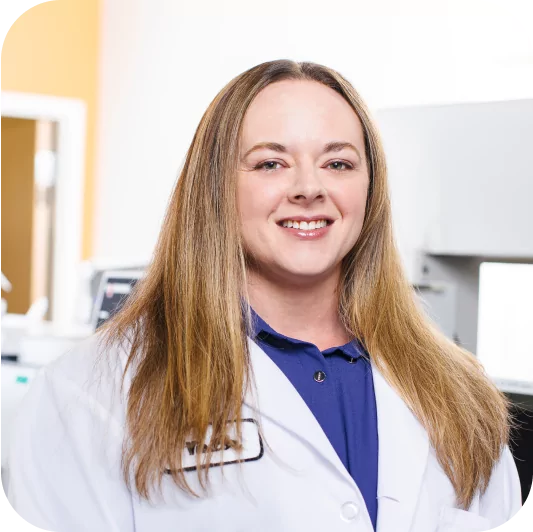Reducing pharmaceutical reliance on agriculture
Reducing pharmaceutical reliance on agriculture
Using synthetic biology to develop next-generation medicines
Today, 40% of KSMs and APIs are sourced from nature. Cultivating agricultural crops for drugs is a slow, inefficient, and risk-laden process, leaving pharmaceutical supply chains vulnerable and frequently causing shortages of critical and essential medicines. Synthetic biology represents the future of modernized pharmaceutical manufacturing.
Using synthetic biology to develop next-generation medicines
Today, 40% of KSMs and APIs are sourced from nature. Cultivating agricultural crops for drugs is a slow, inefficient, and risk-laden process, leaving pharmaceutical supply chains vulnerable and frequently causing shortages of critical and essential medicines. Synthetic biology represents the future of modernized pharmaceutical manufacturing.
The future of small molecule manufacturing
Our platform enables fermentation-based manufacturing of some of the most complex small molecule drugs that previously could only be accessed and produced through agricultural cultivation.
Leveraging our whole-cell engineering approach, we reconstruct biosynthetic pathways of unprecedented complexity and length in yeast cells, dramatically expanding the variety of compounds that can be produced through fermentation. Using these engineered yeast cells, we convert sugars into complex molecules – our Biosynthetic KSMs and APIs.
Build
Engineering assembly lines in microbial factories
First, we collect genomic information from diverse organisms found in nature. We then apply advanced bioinformatics tools to search, analyze, and identify genes that encode enzymes, which catalyze the production of valuable and complex natural products.
We then encode the DNA of yeast – our production organism of choice – with the blueprint for producing complex, highly potent medicinal small molecules. We engineer molecular factory assembly lines in yeast to efficiently produce medicines with precise control over how enzymes work together to build the biosynthesis pathway.
Screen
& develop
Honing fermentation and downstream processing
After building these engineered microbes, we apply a high-throughput workflow to achieve small-scale quantitative performance characterization of tens of thousands of strain designs on a monthly basis. In-parallel, fermentation and downstream chemistry processes are developed to produce and purify the target molecule. These processes – and their many iterations – offer early insights into the best approach to transitioning to pilot and full-scale production and help mitigate risks and uncertainties.
Together, these streamlined workflows pave a clear path for moving a product to industrial manufacturing.
Optimize
Leveraging a
data-driven approach
We develop advanced analytics and modeling tools to optimize, streamline, and systematize our discovery and design processes.
With expansive in-house data sets accumulated through our R&D processes, we achieve significant improvements on our biomanufacturing platform using a data-driven approach. We are continuously improving our processes, both at the R&D and commercial scale to drive greater efficiencies.
Scale
Adapting R&D to industrial scale
In parallel to strain screening and process development, we begin the process of identifying full scale manufacturing capacity and scaling up to commercial volumes. While many strains will perform well at the bench scale, transitioning those same processes to a pilot scale (up to 500L) and eventually to industrial scale (>100,000L) is highly complex and requires deep integration across R&D, manufacturing, process engineering, supply chain, quality assurance, quality control, and regulatory affairs.
The scale-up phase involves a constant feedback loop with R&D to ensure we are making the appropriate process changes and investments to produce our compounds as efficiently as possible at industrial levels.
Learn more about our pipeline of biosynthetic KSMs and APIs.
Our platform enables distinct advantages over legacy approaches
Efficiency
Optimizes overall costs, including natural resources, labor, and overhead.
Speed
Dramatically reduces production timelines from years to weeks.
Agility
Enables on-demand, rapid response production that can support U.S. manufacturing and changes in demand.
Reliability
Allows for low latency production with consistent and predictable yields.
Sustainability
Reduces footprint by manufacturing in a contained environment with fewer natural resources and transit requirements.
Innovation
An evolution for pharma that demonstrates the prowess of synthetic biology as an advanced manufacturing technology.
Efficiency
Optimizes overall costs, including natural resources, labor, and overhead.
Agility
Enables on-demand, rapid response production that can support U.S. manufacturing and changes in demand.
Sustainability
Reduces footprint by manufacturing in a contained environment with fewer natural resources and transit requirements.
Speed
Dramatically reduces production timelines from years to weeks.
Reliability
Allows for low latency production with consistent and predictable yields.
Innovation
An evolution for pharma that demonstrates the prowess of synthetic biology as an advanced manufacturing technology.
Efficiency
Optimizes overall costs, including natural resources, labor, and overhead.
